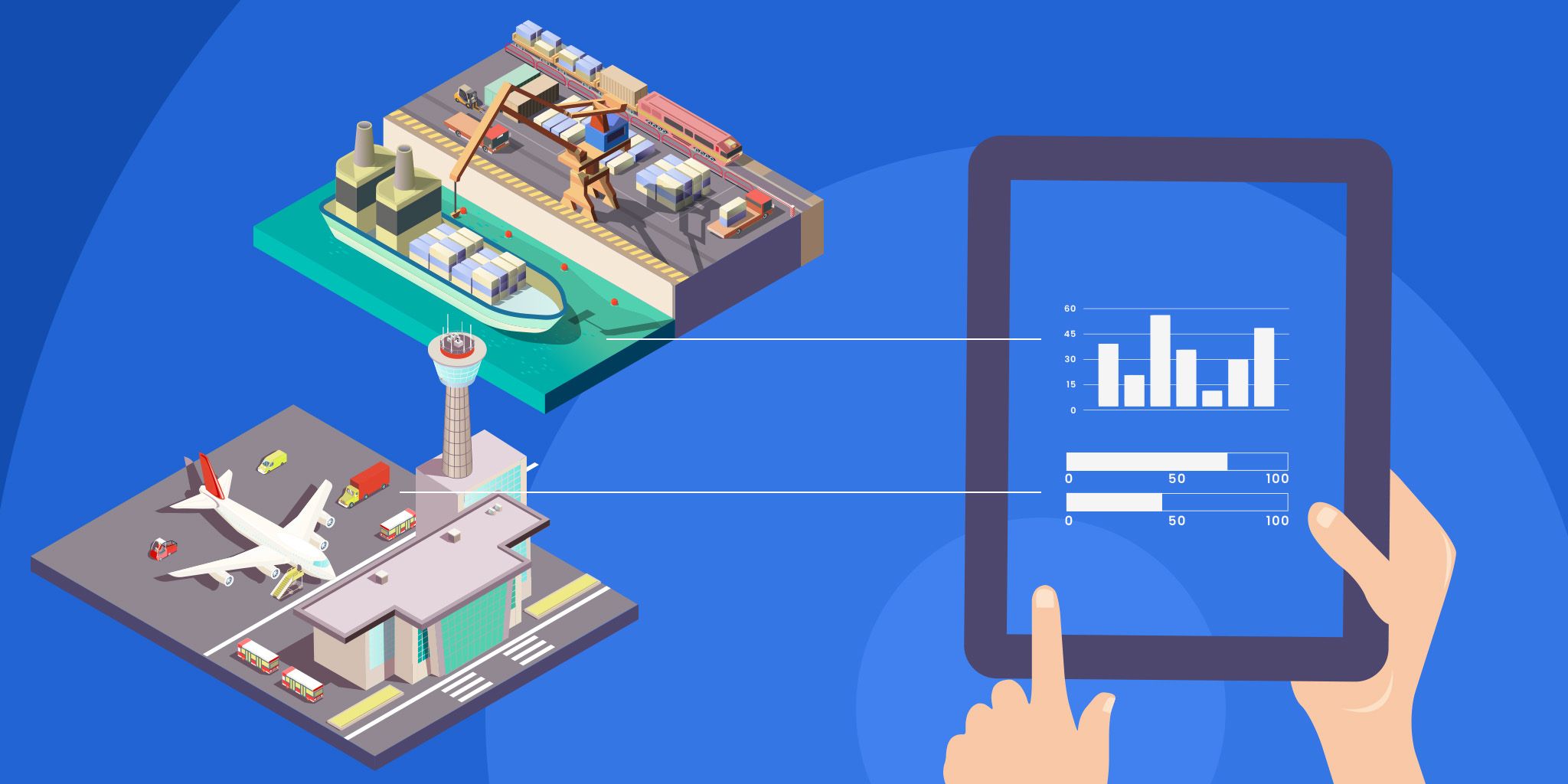eSIM: Powering IIoT Technology for Success
eSIM: Powering IIoT Technology for Success
- Last Updated: December 2, 2024
TEAL
- Last Updated: December 2, 2024



The rise of the Industrial Internet of Things (IIoT) technology has revolutionized the way various industries operate. IIoT is the interconnection of all things industrial and represents a flow of critical data that can be analyzed and integrated to support fast, informed decisions, flexible manufacturing, optimized workflows, and more.
From manufacturing to shipping, IIoT solutions capture real-time data, enable predictive maintenance, and support decision-making processes to optimize operations. IIoT is heavily dependent on sensors, high-bandwidth wireless data transmission, and applications to support communication, analysis, visualization, and more. However, the success of IIoT solutions largely depends on reliable, redundant connectivity across various geographies.
eSIM technology has emerged as an ideal solution to connect IIoT technology, supporting critical applications across numerous industries. Let's the role of eSIM technology in powering IIoT, its benefits, and how it is driving success across many industries, including manufacturing, energy, transportation, and more.
"eSIM technology has emerged as an ideal solution to connect IIoT technology, supporting critical applications across numerous industries."
What is eSIM?
eSIMs come in multiple form factors and are similar to a traditional SIM, as eSIMs can be a physical, insertable chip (2FF/3FF/4FF). However, unlike traditional SIMs, eSIMs can also be soldered onto the motherboard of a device (MFF2). Companies like, Teal offer both plastic eSIM cards (like your standard SIM form factor) and embedded eSIMs that are compatible with any IoT device.
This means that users can connect their devices to any carrier network without having to physically swap out their SIM cards; all they need is access to an available network and the activation process is simple. This makes connecting devices directly to the right networks easier than ever before. Security is paramount for IIoT solutions, which is why choosing a solution that is GSMA certified is critical when selecting an eSIM vendor.
Benefits of eSIM TEchnology
eSIM technology offers numerous benefits, making it a game-changer for IIoT applications:
- Enhanced flexibility and scalability: eSIMs can be programmed and provisioned remotely, providing the flexibility to switch Mobile Network Operator (MNO) providers without having to physically replace SIM cards removing the need to perform “truck rolls”. This feature is useful in situations where devices are scattered across different networks or geographies. Having the ability to dynamically switch between networks on demand saves time and money.
- Reduced operational costs: As eSIMs are durable, ruggedized, and do not require physical replacement, operational costs are reduced significantly. eSIMs also eliminate the logistical challenges of managing contracts with multiple connectivity providers. eSIM helps to streamline operations with one eSIM SKU, and one contract that gives you access to any network at the click of a button.
- Improved security: eSIMs support robust security features such as hardware security modules (HSMs) and encrypt data transmissions, protecting against cyber threats and unauthorized access to sensitive information.
- Enhanced coverage: With true eSIM, devices can connect to any network worldwide on-demand, providing uninterrupted connectivity globally.
eSIM & IIoT: Success Across Various Industries
eSIM technology is powering IIoT technology across various industries, enabling them to stay ahead of the competition by optimizing their operations and services.
- Manufacturing: In the manufacturing industry, eSIM technology supports predictive maintenance, improving equipment uptime and reducing maintenance costs. It is also crucial in supporting the transition to 5G networks, which will undoubtedly impact the industry’s future operations.
- Energy and utilities: By implementing eSIM technology, energy and utility companies can monitor equipment performance in real-time, identifying issues before they cause costly downtime. Energy companies can also track and monitor remote assets such as wind turbines, oil rigs, and solar panels.
- Mining: One of the key enablers of IoT technology in mining is eSIM, which is replacing traditional SIM cards to provide more secure and flexible connectivity for IoT devices that are making a huge impact on mining operations. Mining has always been a challenging and dangerous industry that requires advanced technology to protect workers and optimize operations. The Internet of Things (IoT) is transforming the mining industry by providing real-time data insights into every aspect of the mining process, from exploration to production, logistics, and safety.
- Transportation and logistics: eSIM technology supports real-time tracking and monitoring of logistics fleets, providing improved asset management, predictive maintenance capabilities, route optimization, and cost savings.
- Healthcare: It should come as no surprise that IIoT is rapidly becoming an invaluable tool in the healthcare and medical industries. From patient monitoring and telemedicine to remote diagnostics, eSIM technology is transforming healthcare operations by enabling secure transfer of sensitive patient data without sacrificing security or privacy.
eSIM's emergence will continue to positively impact IIoT in the future. It's benefits will play a crucial role in various industries, making it the game-changer for applications.
The Most Comprehensive IoT Newsletter for Enterprises
Showcasing the highest-quality content, resources, news, and insights from the world of the Internet of Things. Subscribe to remain informed and up-to-date.
New Podcast Episode

The State of Smart Buildings
Related Articles





